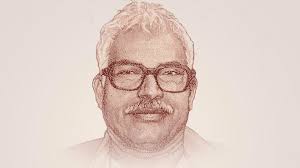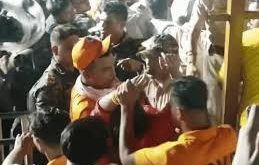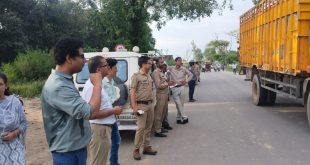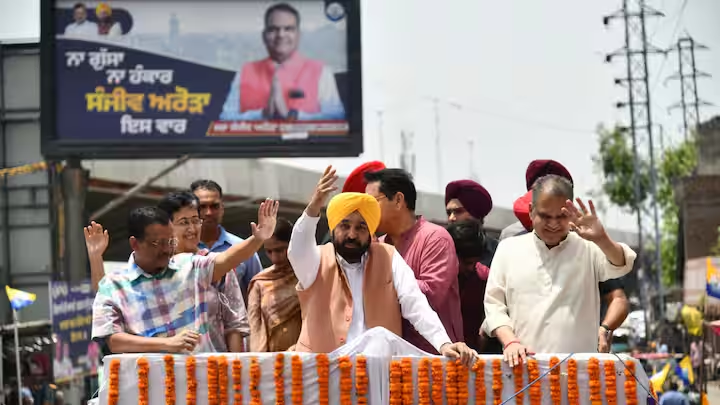New Delhi: It has been announced to give Bharat Ratna to veteran socialist leader of Bihar Karpoori Thakur. Wednesday is Karpoori Thakur’s birthday and his birth centenary. Karpoori Thakur was one of those leaders who took part in India’s freedom struggle. He played an important role in the emergence of socialist-backward leadership in Bihar. In the seventies he also became the Deputy Chief Minister of Bihar. After Jaiprakash Narayan’s complete revolution in 1977, there was a change of power in Bihar and he was made the Chief Minister of the Janata Party government. He opened many fronts of battles related to socio-economic and linguistic equality. He was one of those leaders whose administrative abilities were respected by everyone. Karpoori Thakur’s honesty was also never questioned. He carried forward the ideological legacy of Lohia and Jaiprakash. Lalu Yadav and Nitish Kumar have also followed his path and done their politics in Bihar.
10 big things about ‘Jannanayak’ Karpoori Thakur
Karpoori Thakur, an advocate of social justice, had made a provision of three per cent reservation each for the upper caste poor and women ( women) of each category, apart from the Scheduled Castes, Tribes and Other Backward Classes, four decades ago. When Karpoori Thakur was the Chief Minister, Bihar became the first state in the country to implement reservation for Other Backward Classes (OBC). They had then implemented a total of 26% quota in jobs.
Karpoori Thakur was born in 1924 in Pitoujhiya village of Samastipur district of Bihar.
Karpoori Thakur was the Chief Minister of Bihar twice. From December 1970 to June 1971 and from December 1977 to April 1979.
Karpoori Thakur worked all his life for Dalits and backward people. Leaders like Nitish Kumar and Lalu Prasad Yadav brightened their politics by following his path.
During his brief tenure as Chief Minister, Karpoori Thakur had completely banned liquor in Bihar. However, this was opposed by the Dalits, whose employment depended on the toddy trade.
He was known as a public leader. He dedicated his entire life to the socially backward communities in Bihar.
Karpoori Thakur belonged to a poor family and was known for living a very honest and simple life.
Karpoori Thakur was a freedom fighter as well as a teacher and successful politician. He was also involved in the Quit India Movement of 1942.
When he reached the Lok Sabha after winning the Lok Sabha elections in 1977, he had said in his address, ‘The privileges of the Parliament should remain intact but also the rights of the people. If the rights of the people are crushed then one day or the other the people will challenge the privileges of the Parliament.
While being the Chief Minister, he took many measures to improve the education system in Bihar. He had changed the then education policy to promote the native and mother tongue. He linked language to livelihood.

( women)
 Indian Thought Latest News & Views
Indian Thought Latest News & Views


